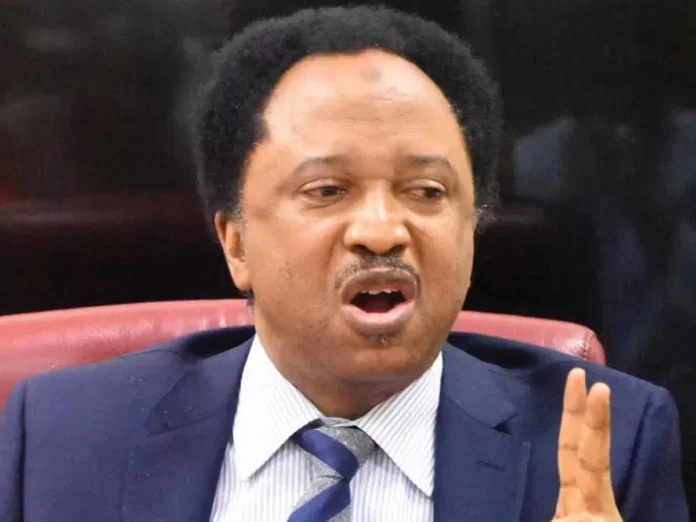A former senator and human rights activist, Shehu Sani, has said that the decision of many pro-democracy activists to stay away from politics in 1999 is still affecting Nigeria’s democracy today.
Sani, who represented Kaduna Central Senatorial District in the 8th National Assembly, made this known during an interview with the News Agency of Nigeria (NAN) on Sunday in Abuja. He explained that while Nigeria was transitioning from military to civilian rule in 1999, many activists refused to join politics, which he now considers a mistake with long-lasting consequences.
Activists Divided in 1999
According to Sani, the struggle for democracy in the 1990s involved several activists, including Bola Tinubu, Gani Fawehinmi, Femi Falana, Olisa Agbakoba, Mike Ozekhome, and himself. However, when the country returned to democracy, these activists split into two different approaches.
He pointed out that while Tinubu decided to join politics and build political structures, many other activists continued to focus on human rights advocacy and social justice rather than actively engaging in governance.
“The mistake some of us activists made in 1999 is still affecting democracy up till today. When it was time for transition to civil rule, we refused to stop our activism,” Sani said.
He noted that at the time, about 98 percent of pro-democracy activists followed the path of Gani Fawehinmi, believing that the fight for justice and human rights should continue outside the political system. However, by the time they realized that real change required direct political involvement, it was already too late.
Failed Political Contests
Sani recalled that by 2003, several activists, including himself, attempted to contest elections but failed to make a significant impact. He mentioned that Olisa Agbakoba and Gani Fawehinmi contested for the presidency but were unsuccessful. Mike Ozekhome and Femi Falana also ran for governorship positions in Edo and Ekiti states, respectively, but could not win.
By this time, Tinubu had already moved on from activism to become the governor of Lagos State. Today, he is the president of Nigeria.
“We took the wrong path as activists, I must say. By the time we realized that we needed to take over political power, all the political space had already been dominated by people who did not fight for democracy,” Sani lamented.
He compared the Nigerian experience to that of South Africa, where the African National Congress (ANC) transitioned from being a resistance movement to a political party and successfully took over power after the fall of apartheid. According to him, if ANC had refused to transition into a political party, apartheid might have continued, with another group taking power instead of the freedom fighters.
Quoting from the Bible, Sani emphasized that there is a time for everything. He said activists had their time to fight for democracy, but when it was time to transition into governance, they failed to do so, and the opportunity slipped away.
Impact on Today’s Politics
Sani expressed regret that the absence of activists in Nigerian politics created a vacuum that was filled by individuals who did not share the same vision for democracy. He believes this decision continues to affect governance and democracy in the country.
“The likes of Jerry Gana, Sule Lamido, and others who shared similar ideologies with Tinubu in the past are now far apart from him,” Sani said. He lamented that most of the people currently working with the president do not share the same activist background as him.
Sani’s comments highlight the long-term consequences of political decisions made at crucial moments in Nigeria’s history. As the country continues to face challenges in governance, his remarks serve as a reflection on how the choices of the past continue to shape the present.

